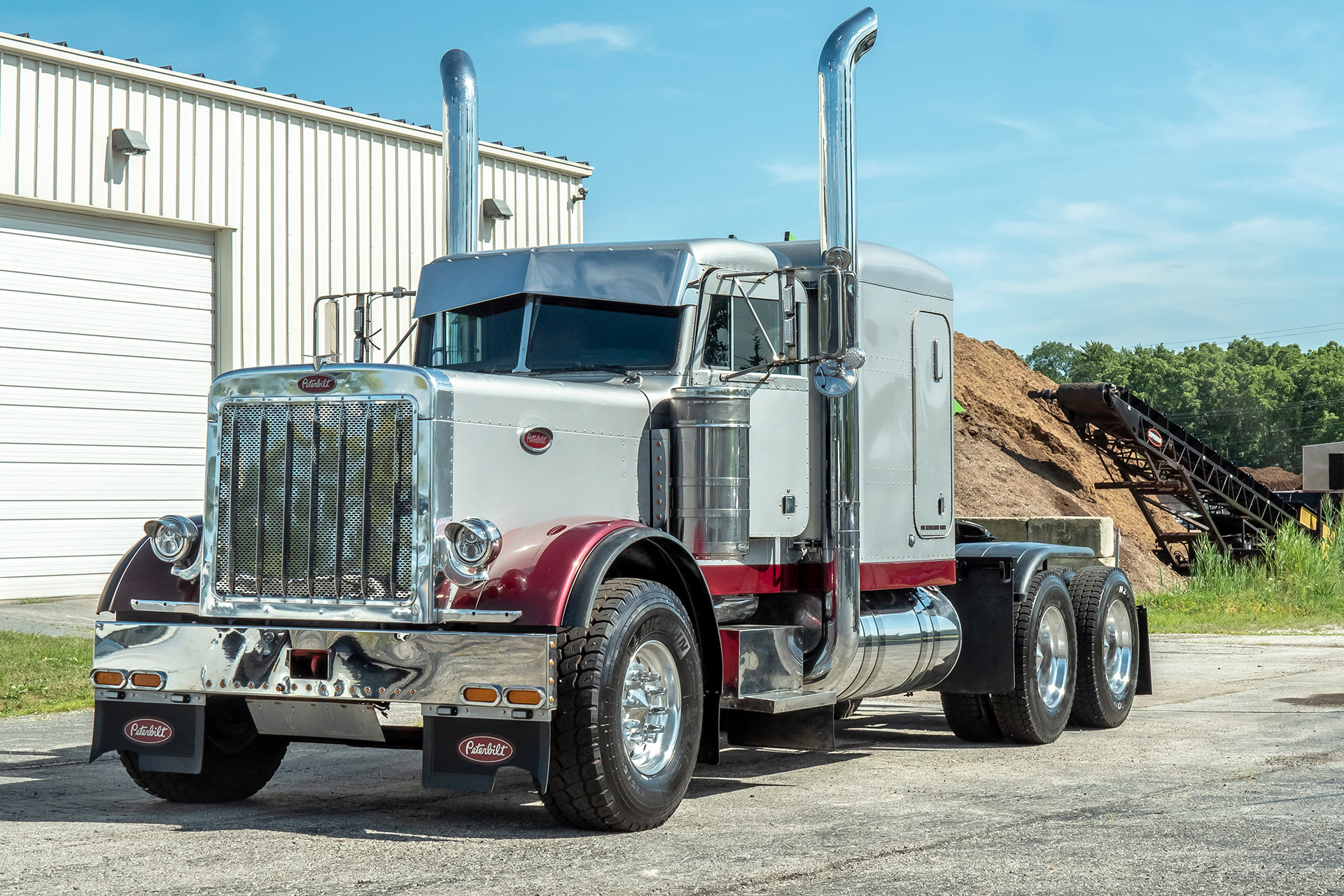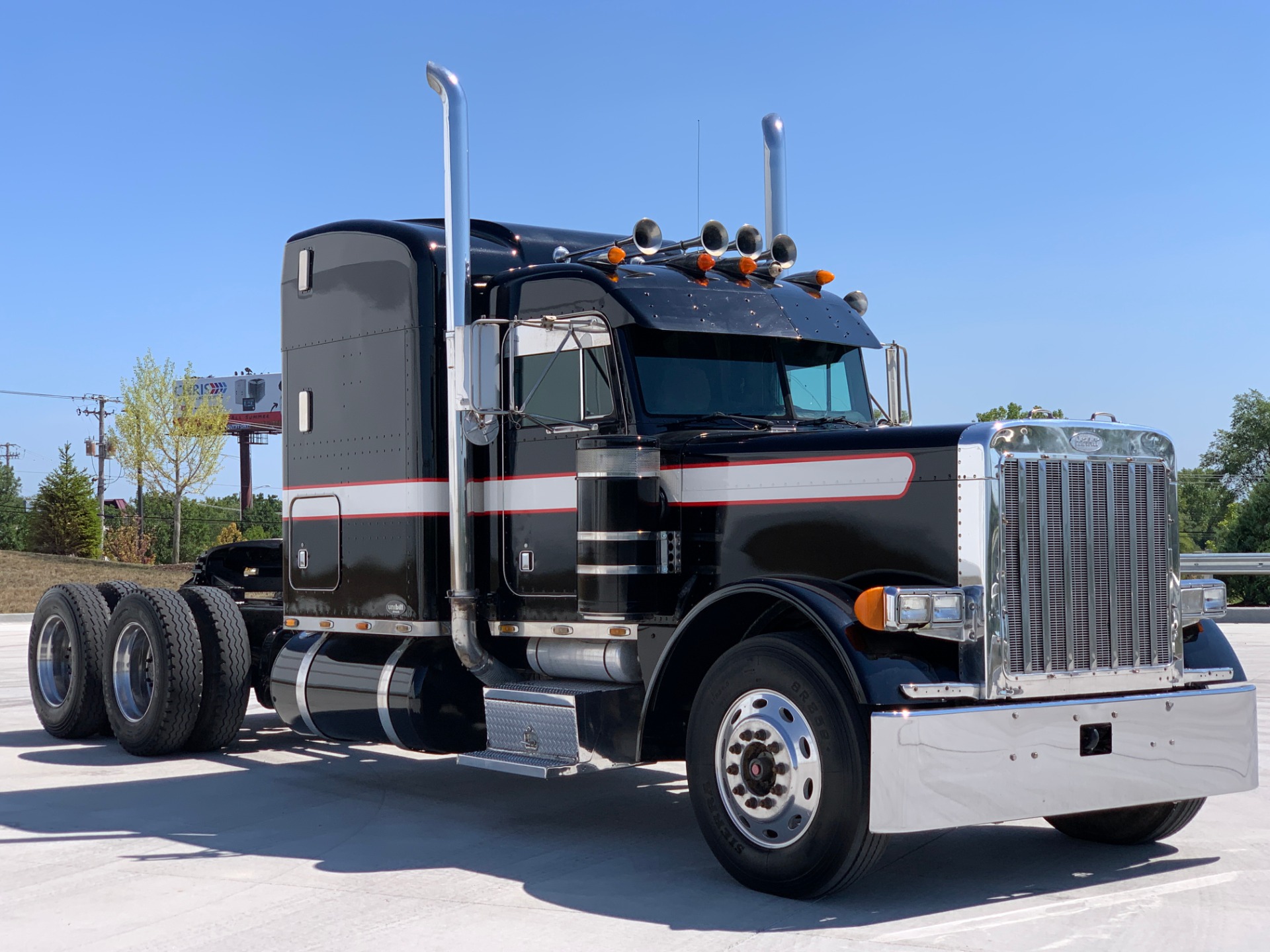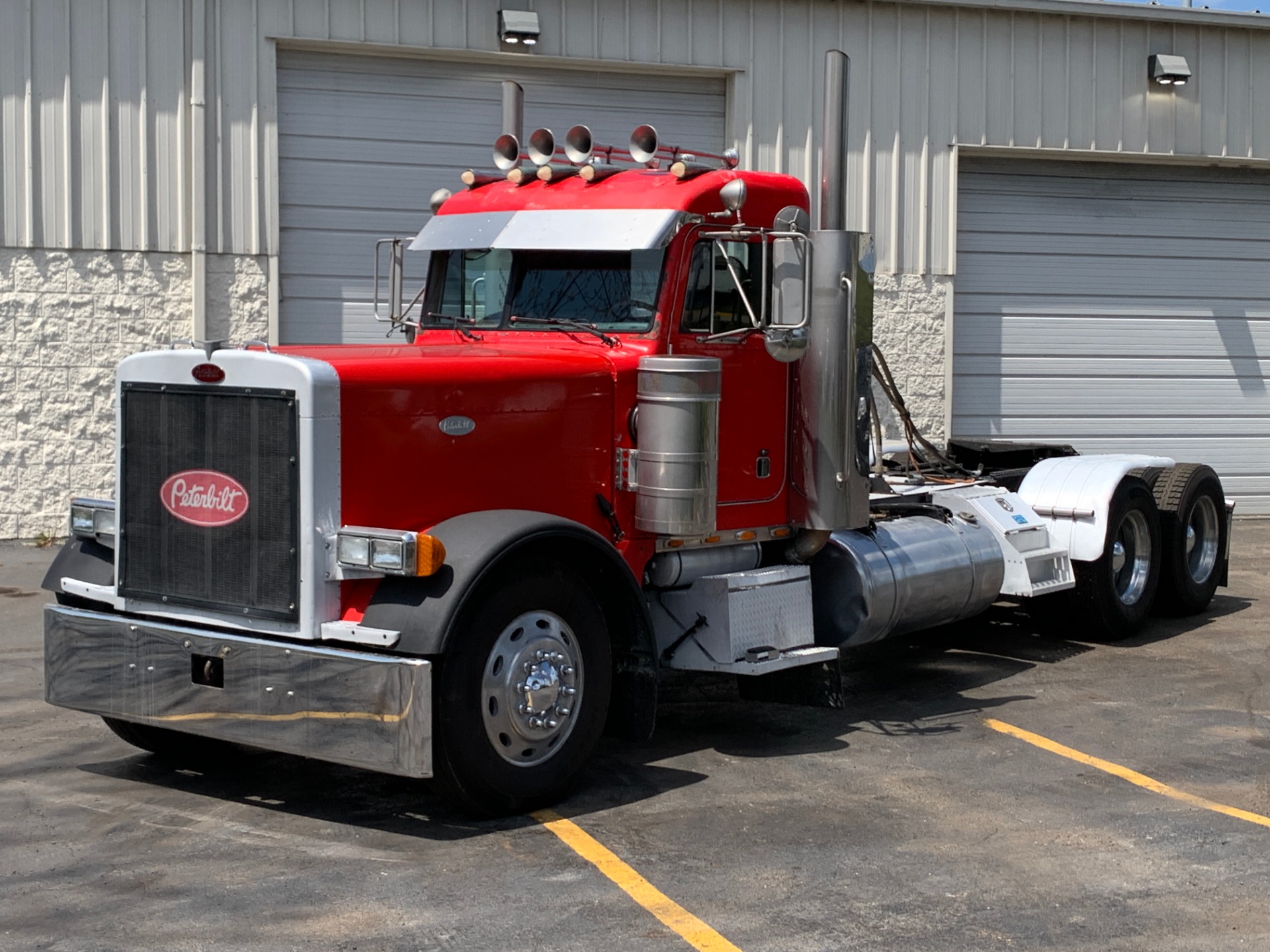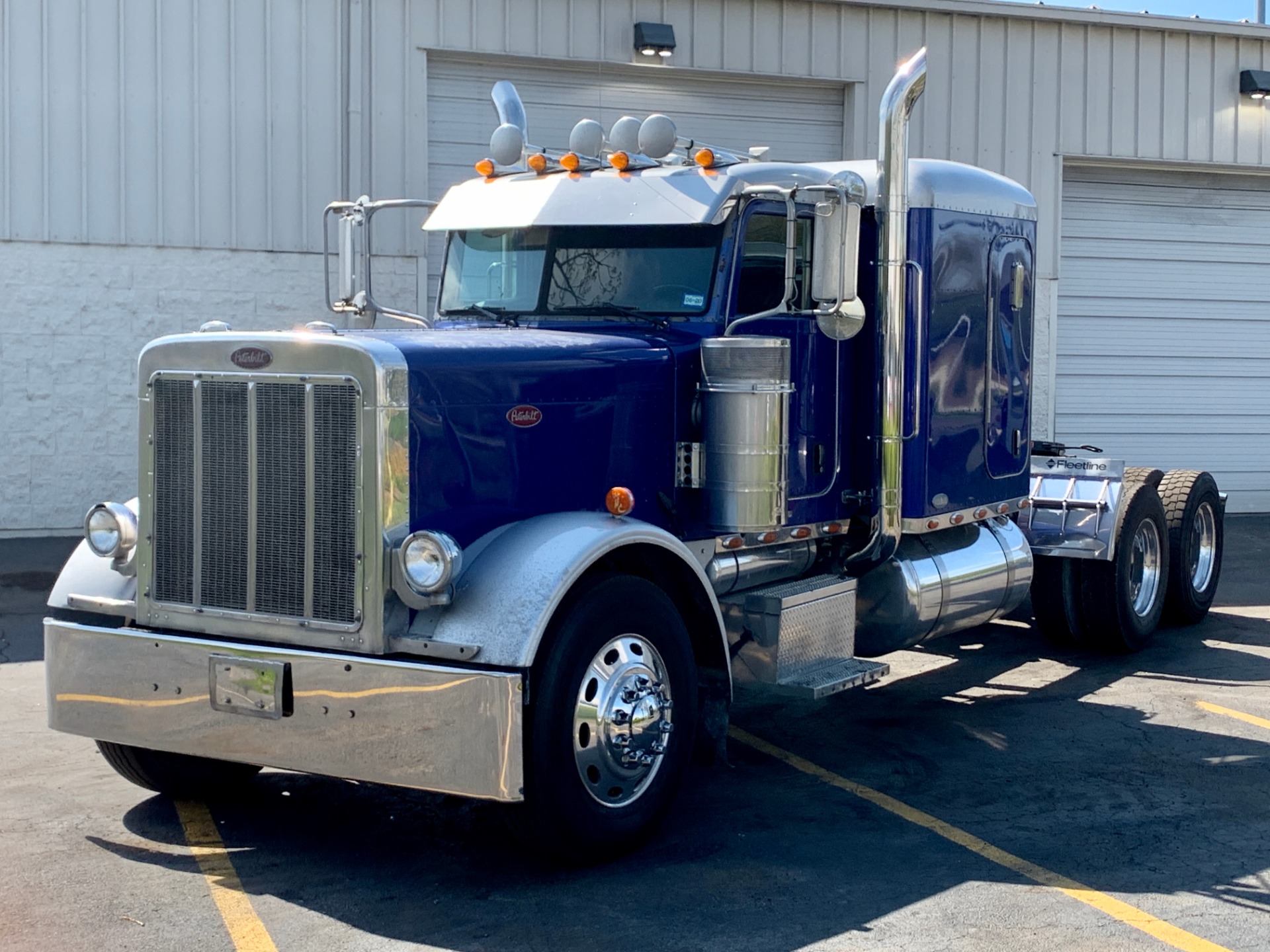Used Pete 379 For Sale – The sale process itself can be lengthy and involves multiple stages. Online platforms also offer the convenience of searching for specific items, whether it’s a rare collector’s item, a particular brand of clothing, or a piece of furniture that fits a specific design style. In a world where everything is for sale, it’s easy for the vulnerable and the marginalized to be taken advantage of. They can assist in determining the right price for the business, marketing it to potential buyers, and managing the negotiation process. Buying second-hand goods has numerous advantages. Art, music, literature — these expressions of human creativity and emotion are not always bound by the rules of commerce. The due diligence process helps the buyer understand the risks involved, the company’s market potential, and any legal or operational hurdles that may exist. This is especially true in a world dominated by fast fashion, disposable electronics, and mass-produced products. For the buyer, acquiring such a piece may carry with it the honor of preserving a legacy, or the satisfaction of adding a unique, timeless item to their own collection. This leads to the accumulation of waste that ends up in landfills, contributing to pollution and the depletion of valuable resources. Conversely, periods of economic growth may lead to more businesses being sold due to increased valuations and higher demand. Many people continue to resist the notion that everything has a price, and they fight to reclaim what is meaningful and valuable in life. Whether it’s a handmade leather bag, a vintage watch, or a luxury car, the term “quality” brings with it an expectation — an assurance that the item in question has been crafted with care, attention to detail, and materials that can stand the test of time. The very notion that everything can be bought and sold creates a society where inequality is not just accepted, but ingrained in the very structure of the economy. A piece of art, for example, may be valued differently by various individuals based on personal taste, financial resources, or the emotional connection they feel to the work. The world of second-hand shopping has also made quality goods more accessible. Most new items, particularly electronics, are designed with built-in obsolescence. The adage “you get what you pay for” rings especially true in the realm of quality goods. Self-help books and motivational speakers promise to sell us the tools to fix ourselves, to buy into a better version of who we could be. In the end, the real challenge is to navigate this world — to understand the forces of commerce that shape our lives, while holding onto those things that remain beyond the reach of money.

Used 1999 Peterbilt 379 T/A Heavy Haul For Sale (58,700) Chicago
Talk to a penske repbest buying experienceepa compliant trucks

Used 1996 Peterbilt 379 For Sale (28,800) Chicago Motor Cars Stock
Talk to a penske repbest buying experienceepa compliant trucks

Used 2005 Peterbilt 379 For Sale (Special Pricing) Chicago Motor Cars
Talk to a penske repbest buying experienceepa compliant trucks

Used 2001 Peterbilt 379 Sleeper Heavy Haul Truck EXTENSIVE SERVICE For
Talk to a penske repbest buying experienceepa compliant trucks

Used 1998 Peterbilt 379 Sleeper CAT 3406 550 HP SUPER CLEAN! For
Talk to a penske repbest buying experienceepa compliant trucks

1995 PETERBILT 379 For Sale In Gonzales, Texas
Talk to a penske repbest buying experienceepa compliant trucks

Used 2001 Peterbilt 379 Sleeper Heavy Haul Truck EXTENSIVE SERVICE For
Talk to a penske repbest buying experienceepa compliant trucks

Used 2000 Peterbilt 379 Day CabCAT 3406550 Horsepower For Sale
Talk to a penske repbest buying experienceepa compliant trucks

Used 2005 Peterbilt 379 For Sale (Special Pricing) Chicago Motor Cars
Talk to a penske repbest buying experienceepa compliant trucks

Used 2005 PETERBILT 379 Sleeper CAT C15 475 HP For Sale (Special
Talk to a penske repbest buying experienceepa compliant trucks
We live in a society where people constantly trade their time for money, their expertise for compensation, their dreams for tangible rewards. Each item was unique, and the quality was immediately apparent to the buyer. In the age of immediacy, it can often feel as though many goods are made with built-in obsolescence, created to be replaced every few years. Whether it’s funding education, supporting homelessness services, or providing medical assistance, the money spent in second-hand shops can contribute to making a difference in the lives of others. There are those who argue that not everything should be for sale. By buying second-hand goods, consumers can feel good about supporting their communities and giving back to those in need. Historically, many products were made by local craftsmen, and there was a direct relationship between the creator and the consumer. This sense of history and individuality is part of what makes second-hand shopping so appealing. This has opened up new possibilities for people to find exactly what they’re looking for, whether it’s a specific brand of furniture or a limited edition item that was once sold out. As more and more people become concerned about the planet’s resources and the impact of consumerism on the environment, the concept of buying used goods has gained traction as a more sustainable alternative to purchasing new products. The practice of buying and selling second-hand items has been around for centuries, but in recent years, it has seen a resurgence. It implies that there’s nothing off-limits, nothing beyond the reach of commerce. The rise of minimalism and a desire for unique, vintage items has also played a role in the growing popularity of second-hand goods. Social movements and grassroots organizations work tirelessly to provide resources and support to those who need it, often without expecting anything in return. Upcycling is a great way to make the most out of second-hand goods, adding both value and meaning to the items that are being repurposed. Social media platforms, for example, offer users a chance to buy into their own identity, to curate a version of themselves that is more appealing, more desirable, more marketable. When a car is put up for sale, it can feel like letting go of a part of one’s journey. The object becomes more than just an object – it transforms into a transaction, an exchange of value. Second-hand markets also promote the idea of a circular economy, an economic system that focuses on reducing waste and reusing products. Similarly, a quality suit made from fine wool will age gracefully, developing a patina that speaks to its craftsmanship.
Brokers are well-versed in valuation, marketing, negotiation, and closing procedures, which makes them invaluable assets in the business-for-sale process. However, there’s also an argument to be made that, over time, quality goods are often more economical in the long run. Additionally, many second-hand items are still in excellent condition, having been gently used or well-maintained by their previous owners, further enhancing the appeal of these products. Whether it’s a car, a house, or a simple piece of furniture, there’s a process that unfolds. For many, purchasing second-hand goods is not just about saving money, but about embracing sustainability, supporting a circular economy, and contributing to a more environmentally conscious world. For those looking to sell, the online marketplace offers the chance to reach a larger audience, increasing the chances of finding the right buyer. Entrepreneurs can launch businesses from their homes, and freelancers can offer their skills to clients across the world. In some cases, it’s not just objects that are for sale, but entire industries or institutions. Whether it’s a vintage armchair, a gently used dining table, or a piece of mid-century modern furniture, second-hand furniture can be both functional and stylish. Some goods, like a fine Swiss watch, carry decades or even centuries of tradition, built on a reputation of precision and excellence. A piece of furniture, for instance, may hold sentimental value simply because it’s been in the family for generations. In this broader sense, the concept of “for sale” is not just about the exchange of goods; it’s a driving force in the global economy, influencing how people live, work, and interact with the world around them. Many quality goods are made by artisans or small businesses who take the time to create products that reflect their expertise and passion. A house can be bought, a car can be sold, a watch can be pawned. For instance, when someone is job hunting, it can feel like they’re placing themselves on the market, waiting for the right offer. These generations are more aware of the environmental impact of fast fashion, disposable goods, and the need to adopt more sustainable practices. Perhaps the most troubling aspect of the idea that everything is for sale is how it can shape the way we view the world and each other. The second-hand market is not just about saving money; it’s about embracing a more sustainable, mindful way of consuming that values reuse, repurposing, and the stories behind the items we choose to keep. Business brokers play a key role in facilitating the transaction by acting as intermediaries between the buyer and seller. The closing process also involves transferring the business’s assets, such as inventory, property, intellectual property, and customer contracts, to the new owner.